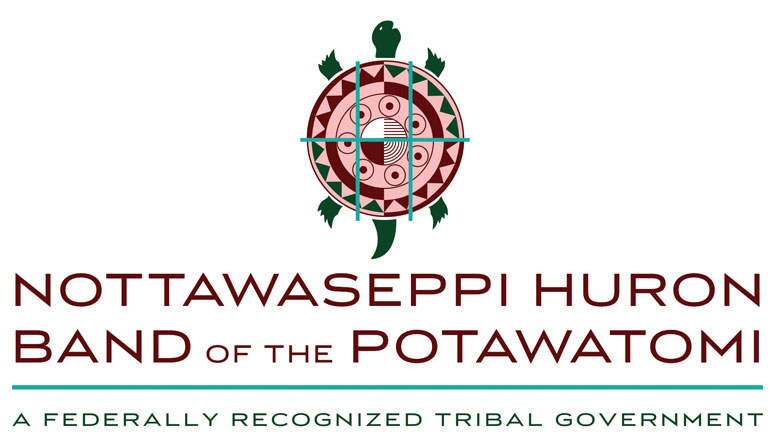
September 27, 2018; Rapid Growth (Grand Rapids, MI)
About 130,000 American Indians live in Michigan, writes Laura Fay Carlson for Rapid Growth. In western Michigan, many of them, Carlson notes, find culturally specific treatment at three clinics run and operated by the Nottawaseppi Huron Band of the Potawatomi. One is located on the Pine Creek Indian Reservation in Fulton, while two are located in the cities of Battle Creek and Grand Rapids. The clinics, Carlson writes, seek to “tackle historical health disparities.” The two urban clinics, Carlson adds, also provide American Indians who “live in cities a chance to reconnect.”
The clinics offer a full range of services—“everything from general checkups and dental care, to substance abuse treatment and disease prevention and community health,” writes Carlson. They also host cultural activities like crafting and drum circles. “What we want to do is create an environment that is culturally appropriate that they feel like this is theirs…like these services are theirs,” says health and human services director Rosalind Johnston.
The result of this holistic approach, notes Carlson, is to create “a one-stop shop for medical, mental, and emotional health—patients are able to access timely and focused care.”
Eric Williams, a Potawatomi interviewed by Carlson whose family has lived in Grand Rapids for generations, says that, “Having access to the clinic has helped me reconnect to what it means to be native, it has helped me strengthen ties to my tribe and other tribes, helped me learn new skills like crafting or regalia assembly, it’s helping me learn my language….Having counselors that understand a native point of view, that understand generational trauma, cultural competency, and sensitivity to issues that affect us is amazing.”
Sign up for our free newsletters
Subscribe to NPQ's newsletters to have our top stories delivered directly to your inbox.
By signing up, you agree to our privacy policy and terms of use, and to receive messages from NPQ and our partners.
While Potawatomi run the clinics, they serve members who are enrolled in 15 different Michigan-based American Indian nations. A part-Ojibwe, part-Odawa patient (whose name remained undisclosed) tells Carlson that, “I’ve done therapy outside of that clinic before…[at the clinic,] I don’t have to explain myself.” According to this patient, cultural activities such as meditation, eating common meals, and participating in traditional crafts build connections and a sense of community that have helped her stay substance-free. “For me, culture is part of that process…it’s really important to me, and it’s really helpful, [it] helps me stay sane and balanced.”
Kristy Shananaquet, a member of the Grand Traverse Band of Ottawa and Chippewa Indians, informs Carlson that the clinic helped her to recover from a divorce. Shananaquet says that, “I don’t know where I would be in my recovery [without their services].” For her, the combination of medical health treatment, cultural understanding, and a sense of community was critical. “That impact of bringing us all together as a people goes beyond the doors of that clinic,” she adds.
The Grand Rapids clinic alone employs 20 healthcare staff, including physicians, nurse practitioners, physician’s assistants, licensed therapists, health educators, and dentists. They are currently recruiting dietitians. Many of the staff are American Indians themselves. For those staff who aren’t, “We try to provide significant cross-cultural training so that they understand the environment in which we work,” says Johnston.
The Nottawaseppi Huron Band of the Potawatomi has been celebrated for its health care successes. For instance, in 2012, it passed a code to protect the community from commercial tobacco, which has become a widely cited model for “comprehensive and culturally-appropriate commercial tobacco control policies” in Indian Country. In 2016, a community health needs assessment organized by the health clinic network identified four focus areas—adverse childhood experiences (trauma), substance abuse, heart disease and diabetes, and building stronger family and community systems. Based on this assessment, a set of action steps have been developed, including building partnerships with Michigan State University (MSU) Extension and the Michigan Public Health Institute. The health clinics also engage in considerable community organizing and publish a quarterly newsletter than carries stories on themes identified in the health needs assessment, such as building resiliency among teenagers.
Many concerns treated at the clinic, notes Carlson, are generational. “We’re still dealing with historical trauma, colonialism, poverty,” says Johnston. “There is no other urban center like this on this side of the state. [It’s important] to be able to have access to people who are working together to support you and your good health. That’s what we strive for.”—Steve Dubb












